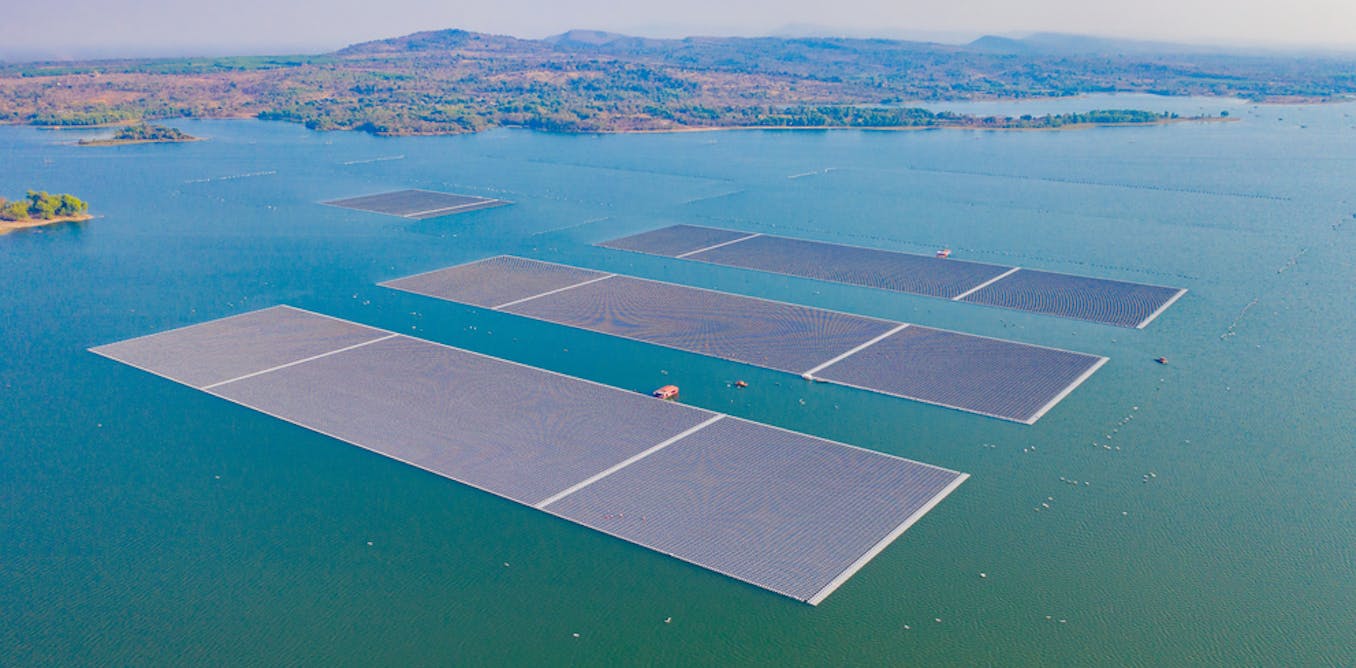- cross-posted to:
- [email protected]
- [email protected]
- cross-posted to:
- [email protected]
- [email protected]
‘Limitless’ energy: how floating solar panels near the equator could power future population hotspots::New research shows densely populated countries in Southeast Asia and West Africa could harvest effectively unlimited energy from solar panels floating on calm tropical seas near the equator.



I was wondering the same thing. Just considering algae, it absorbs a large portion of the world’s CO2. But the ocean is massive and a relatively tiny covered patch wouldn’t dent it much.
Add the fact that the solar panels would negate some of the need to burn fossil fuels, I think the outcome is more than net positive.
As far as any negative impact on wildlife and the biosphere, I’m sure it’s negative, but I don’t know much about it.
This is fucking stupid imo. We have more than enough land area for solar as it is. Why would you add 100x the complexity to your solar plant when you can just build it on land? Now you have to deal with tides, salt water corrosion, your technicians have to be scuba divers or something, running transmission lines through salt water is much harder than the ground. What happens when there’s an electrical fault that kills a bunch of people because they’re submerged in highly conductive salt water?
If you had read even the first sentence of the article, you might’ve learned that just maybe they have a reason to not use land.
Not enough land.
Not every place is like central Africa or Ohio. Basically all coastal regions near the equator (which are the only places they are recommending this) are densely populated. To get the amount of solar panels they suggest, you would have to go far inland (if there is any inland) and have many more much smaller solar plants, and that’s more maintenance than single giant solar field, though as you’ve said, I’m sure on the sea comes with it’s own maintenance problems.
The article also talks about waves, wind and other environmental affects, and shows all the places where the “defences” against the environment wouldn’t have to be strong or expensive.
They most definitely don’t suggest that this be used everywhere. The main example they talked about is Indonesia. Extremely densely populated with little suitable land for solar plants.
TLDR: In most places this is stupid… but they never suggested that. There are certain places where it is viable and possibly the only option for large solar farms.